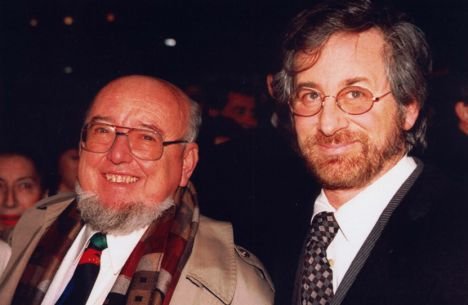Thomas Keneally
Author & Screenwriter

Thomas Michael Keneally, is an Australian novelist, playwright, and essayist. He is best known for writing Schindler’s Ark, the Man Booker Prize-winning novel of 1982 which was inspired by the efforts of Poldek Pfefferberg, a Holocaust survivor.
The book would later be adapted to Steven Spielberg’s ‘Schindler’s List’ on which he initially collaborated on the screenplay. It subsequently won seven Oscars including Best Picture, Best Adapted Screenplay and Spielberg’s first Oscar for Best Director. In March 2009, the Prime Minister of Australia, Kevin Rudd, gave an autographed copy of Keneally’s biography Lincoln to President Barack Obama as a state gift.
Born in Sydney in 1935, Thomas Keneally is considered as one of the most successful modern Australian writers. Keneally has been short-listed for the Man Booker Prize on four occasions: in 1972 for The Chant of Jimmie Blacksmith, Gossip from the Forest in 1975, and Confederates in 1979, before winning the prize in 1982 with Schindler’s Ark.
This last novel caused something of a controversy at the time as it was considered by some to be more a work of journalistic reporting than a novel of fiction, which isn’t supposed to be in the spirit of things. In any event, by the time Steven Spielberg filmed his version of the book under the title Schindler’s List in 1993, the controversy was forgotten.
On the Australian front, Keneally has won the Miles Franklin Award twice with Bring Larks and Heroes and Three Cheers for the Paraclete.
In The Age newspaper of Saturday 7th November 1998 there was the announcement of Keneally’s new book The Great Shame. In an article in that paper, Keneally writes: ‘Some years ago an editor suggested that having written on the Holocaust I should write something on the great Irish catastrophe of the 19th century…We agreed that the 19th-century calamity, particularly the famine, was compelling. But it had been splendidly written about by a number of writers. And it was not comparable to the Holocaust…In any case, I told the editor that if ever I was silly enough to buy into the tendentious question of Irish history I would want to tell the story not frontally from the point of view of convicts transported to Australia for particular crimes, not those aimed directly at person or property but those designed as social or political protest’.
The result was his new book. The research and writing took three years – the longest gap between any successive books in Keneally’s writing history. Thomas Keneally was awarded the Order of Australia in 1983 for his services to Australian Literature.
